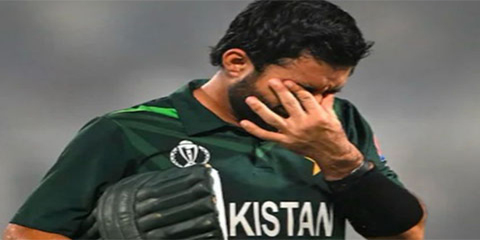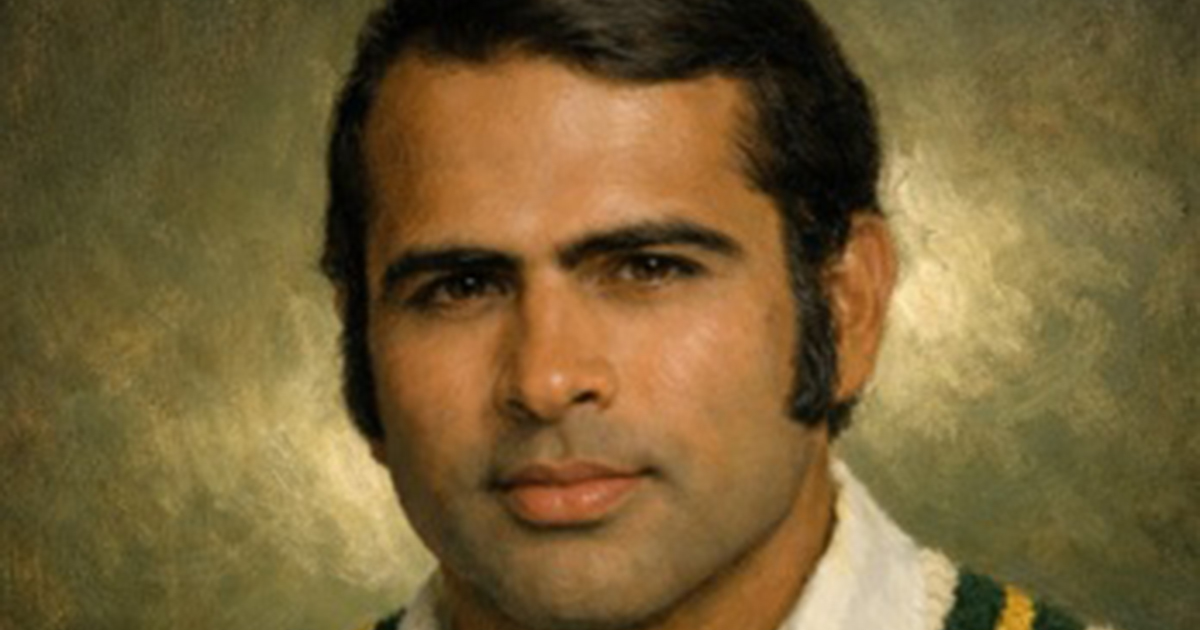The crisis of Pakistan cricket: A system trapped in its own legacy
JournalismPakistan.com | Published: 20 February 2025 | Dr. Nauman Niaz (TI)
Join our WhatsApp channel
The article explores the systemic issues plaguing Pakistan cricket, highlighting its resistance to change and mismanagement. It discusses how entrenched legacies hinder progress and the need for a modern approach to revitalize the sport.Summary
Cricket, in its purest essence, stands as an insightful reflection of Pakistan’s social and political landscape, an unending dialectic wherein the deserving, and the worthy are eclipsed by the undeserving yet favoured, where instinct and intellect are systematically marginalized in service of mediocrity. It is a place of contradictions, where excellence is stifled by the burden of entrenched, ingrained insecurities, and where the past and future coexist in perpetual conflict, each resisting the other’s claim to relevance.
Nowhere is this paradox more pronounced than in Pakistan, where cricket oscillates between ephemeral brilliance and prolonged inertia. The affliction is not one of innate ability but of self-imposed blindness. A nation that once thrived upon individual genius now finds itself bereft of innovation, ensnared within a cricketing bureaucracy that wilfully evades intellectual integrity.
The Incongruity of Authority: Irrelevant Employment in the Cricket Board
At the heart of Pakistan’s cricketing malaise lies the systemic appointment of individuals whose credentials owe more to political expediency and bygone triumphs than to governance or contemporary cricketing sagacity. A nation that once produced heroes of cricket now finds itself shackled by the very men who once bestrode its cricketing integrity, some preserved it, some floundered it, some left it compromised. These ex-cricketers, though towering in stature, lack the expertise to navigate the labyrinthine complexities of the modern game. The result is an administrative apparatus where positions are occupied not by merit but by the anachronistic reverence for past glories and the pernicious influence of patronage, and the undesired like-mindedness.
Anachronisms in a Progressive World: The Refusal to Adapt
Cricket has evolved into a science, measured, methodical, and governed by the rigors of data analytics, biomechanics, and sports medicine. England, Australia, India, and even New Zealand have adopted the cutting edge of high-performance management, yet Pakistan remains mired in anachronistic methodologies. Selection is still dictated by subjective conjecture rather than empirical scrutiny. The refusal to assimilate global advancements stems not from a lack of resources but due to resistance to change, a resistance evolved out of inherent insecurities and incompetency.
Political Machinations: The Game Held Hostage
The cauldrons of Pakistani cricket are not only governed; they are manipulated. Political interventions and factionalism have reduced the sport to a place of vested interests, where reform is neither pursued nor welcomed. Former players, whose legacies as cricketers remain unblemished (some obviously with blemished history), now employ influence far beyond their competence as administrators. Their primacy remains unchallenged, their authority unquestioned, their resistance to reform absolute. The game is no longer about national progress; it is about the consolidation of personal positions.
Budgetary Myopia: Misplaced Priorities Over Development
The financial strategy of the Pakistan Cricket Board has seldom aligned with the imperatives of cricketing advancement. Resources have been squandered on ostentatious infrastructural projects, while the fundamental necessity, of a structured developmental hierarchy remains conspicuously absent. Vast stadiums rise, yet the system to cultivate a reservoir of elite cricketers languishes in destitution. Where funds ought to have been channeled into high-performance centers, injury prevention frameworks, and scientific coaching, they have instead been dissipated upon evanescent projects devoid of long-term efficacy.
An Insecure Bureaucracy: The Tyranny of Unaccountability
In the labyrinthine bureaucracy of Pakistan cricket, positions are seldom occupied by the most capable. Political influence and sycophantic allegiance outweigh professional resumes and capacities. The PCB remains a monolithic body impervious to scrutiny, where accountability is but an alien concept. Innovation is stifled, dissent is crushed, and mediocrity perpetuates itself unimpeded. The result is an organization that operates in a state of self-imposed inertia, unwilling to encircle merited and rightful changes.
The Resistance to Change: An Endemic Malady
The modern game is no longer a contest of raw talent alone; it is a fusion of talent with science, instinct with intellect. Yet Pakistan stubbornly resists the integration of data analytics, artificial intelligence, and cutting-edge sports medicine into its cricketing framework. Instead of adopting biomechanical assessments, injury prevention protocols, and structured high-performance models, it clings to antiquated training regimens and unscientific coaching philosophies. Science has been cast aside in favor of sentiment, and progress remains an estranged view.
A Hollow Infrastructure: Grandiosity Over Functionality
Infrastructure, in its ideal form, must serve a developmental purpose rather than exist as an exercise in vanity. Pakistan’s grand stadiums stand as silent monuments to misplaced ambition, vast, and imposing, yet devoid of the essential frameworks required to sustain a thriving cricketing ecosystem. The absence of structured train-the-trainer programs, a grassroots coaching pipeline, and a tiered developmental structure has left the system directionless. It is not grand showgrounds that breed champions; it is the unseen layers of structured preparation that forge greatness.
Selection: The Fallacy of Reputation Over Performance
In Pakistan, reputation frequently eclipses merit. Players are selected not for contemporary form or fitness but for the romanticized recollections of past achievements. Mediocrity festers, unchallenged by accountability. Once the vanguard of fast bowling, Pakistan now has fast bowlers bereft of the ability to generate genuine pace or master the artistry of swing and seam. The once-feared craft of reverse swing has languished, neglected by those unwilling or unable to innovate. They don’t have express speed, they can’t swing, seam, or reverse the old ball.
The Illusion of All-Rounders and the Fallacy of Part-Time Spinners
Modern cricket demands genuine all-rounders—cricketers capable of exerting decisive influence in both disciplines. Pakistan, however, persists with half-formed all-rounders and ineffective part-time spinners, neither of whom possess the requisite skill to alter the trajectory of a match. The reliance upon inadequately equipped players has rendered the national team brittle, predictable, and strategically deficient.
Wastage of Resources: Misguided Investments in Mentorship
Millions have been expended on team mentors and superficial domestic cricket revamps, yet these investments have lacked an empirical basis. The PCB has failed to diagnose the fundamental deficiencies in the system before engaging in financially extravagant solutions. Without an understanding of structural infirmities, expenditure becomes little more than the cosmetic application of progress.
The Scourge of Influence: The Gatekeeping of Competence
Competence remains a commodity scorned by the gatekeepers of Pakistani cricket. Even those among former players with the requisite expertise remain ostracised, not for a lack of ability, but for their unwillingness to conform to the prevailing order. The PCB, embedded in its bureaucratic inertia, remains an institution where progression is dictated not by knowledge but by submission to self-interests.
The Absence of Game-Changers: A Crisis of Character
Pakistan’s cricketing past is adorned with the legacies of mavericks, players of such irrepressible brilliance that they could exceptionally redefine the course of a match. Majid Khan, Wasim Akram, and Javed Miandad were players who transformed matches through audacity and genius. Today, such cricketers are conspicuously absent. The system has failed to produce individuals with the temerity to excel in the ordinary, to shape destiny through their sheer force of will.
A Game in Peril: The Road to Redemption
Pakistan cricket stands at an inflection point. It may continue to languish within the comforts of nostalgia, or it may awaken to the inexorable march of modernity. The choice is stark, hold on to the vestiges of past glories and recede into irrelevance, or take up evolution, dismantle obsolete structures, and reclaim its lost prestige. Cricket rewards the bold; timidity has no place in its revival.
The question persists: does Pakistan cricket possess the determination to liberate itself from the chains it has wrought? Have we truly resigned ourselves to irrelevance, and if so, does the way to restoration necessitate an adoption of modernity and the rigor of structured governance?
Dr. Nauman Niaz is the Sports Editor at JournalismPakistan.com. He is a civil award winner (Tamagha-i-Imtiaz) in Sports Broadcasting and Journalism and a regular cricket correspondent, covering 54 tours and three ICC World Cups. He has written over 3500 articles, authored 14 books, and is the official historian of Pakistan cricket (Fluctuating Fortunes IV Volumes – 2005). His signature show, Game On Hai, has received the highest ratings and acclaim.
KEY POINTS:
- Pakistan cricket is hindered by a system favoring political patronage over merit.
- Resistance to modern methodologies prevents the adoption of data analytics in cricket.
- Political intervention in cricket governance stifles necessary reforms.

























